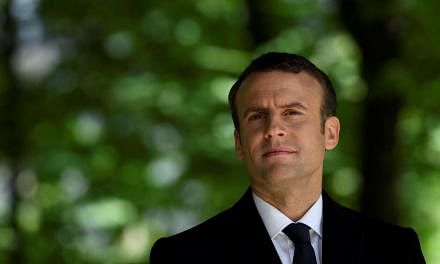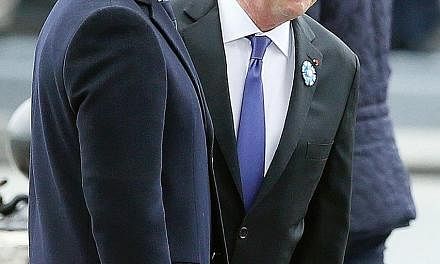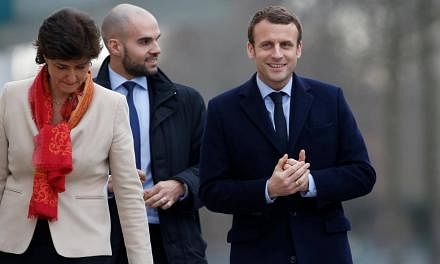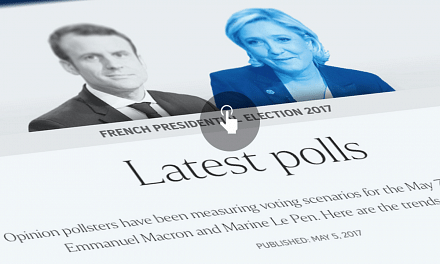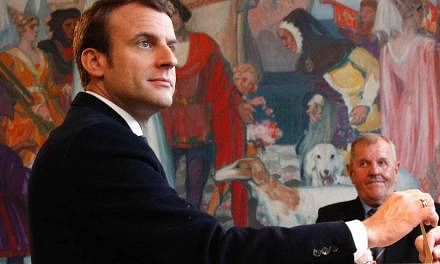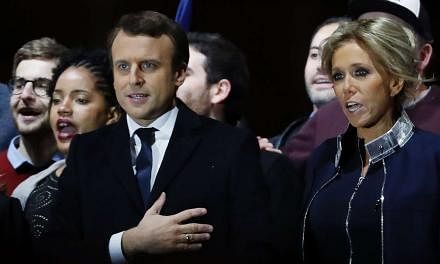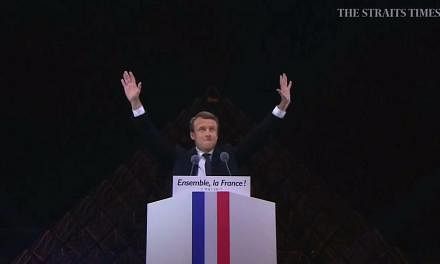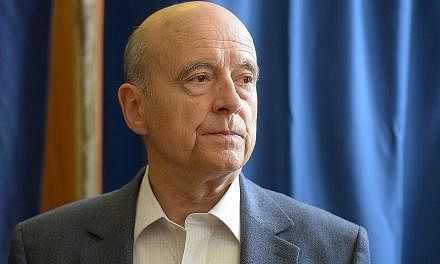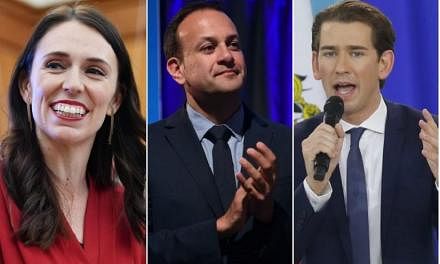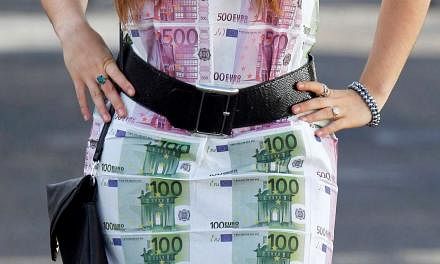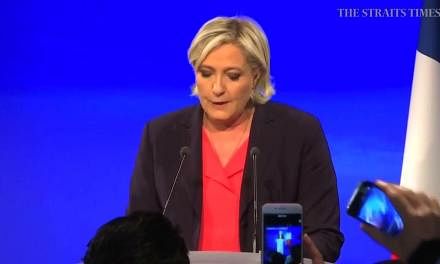Mr Emmanuel Macron may have come up tops in the first round of the French presidential election, but major challenges loom even if he overcomes the brutal battle with rival Marine Le Pen to win the final showdown next month.
Should he win the keys to the Elysee Palace on May 7, he is confronted with a vastly changed political landscape and a country deeply divided over the way ahead for France.
In the election on Sunday, Mr Macron, a social-liberal who entered politics only a year ago and does not have an organised party, finished first with 23.9 per cent of the votes. Ms Le Pen, the leader of the far-right, anti-immigrant National Front, came second with 21.4 per cent. Chances are better than ever that Mr Macron will defeat Ms Le Pen when the decisive one-on-one second round of voting takes place on May 7.
But the campaigning over the next two weeks will be both brutal and gruelling. And Mr Macron's task is not merely to win the presidency, but also to rebuild France's political landscape, which has been gutted by Sunday's ballots.
The key to winning round two lies in the two candidates' abilities to reach out beyond their traditional constituency of voters.
On this score, Mr Macron is likely to fare much better than Ms Le Pen.
Mr Macron, who briefly served as a minister in France's outgoing Socialist government before he decided to run as an independent, is viewed with great suspicion by his former colleagues. Nevertheless, Prime Minister Bernard Cazeneuve has already called on "all French democrats" to vote for him as he is now seen as the only line of defence against Ms Le Pen. Although centre-right voters do not trust Mr Macron either, they are also likely to rally behind his flag.
By comparison, Ms Le Pen is much more restricted in her ability to persuade voters to switch their allegiance. Her abrasive campaigning style and policies, which include a pledge to abandon the euro and quit the European Union, undercut her chances of success.
Ms Le Pen had hoped to do better than opinion polls predicted for her in the first round in order to maintain her electoral momentum. The fact that she failed and her score is precisely that predicted by pollsters does not bode well for her future presidential prospects.
However, she is a far better campaigner than Mr Macron, who has never served in Parliament or run in a national election. In previous televised debates, he came across as on edge and easily riled.
In addition, the National Front leader is guaranteed to pull no punches as she goes for the votes of those frustrated with France's political establishment.
Soon after Sunday's ballots were counted, Ms Le Pen gave notice that she plans to spend the next two weeks hammering home her message against "mass immigration, the free movement of terrorists" and "the reign of big money".
Mr Macron, who used to work as an investment banker and champions European integration and globalisation, will face stepped-up attacks that he is a tool of the capitalist establishment and an agent of the "savage globalisation that threatens our civilisation", as Ms Le Pen put it.
The fiery National Front leader also enjoys another major asset: Her disciplined supporters are very likely to vote in two weeks' time, while Mr Macron's potential backers are more divided.
Of particular concern for him will be how to attract the seven million voters who gave their support in the first round to Mr Jean-Luc Melenchon, a far-left candidate. The danger for Mr Macron is that these voters will simply fail to turn out for the second round, some- thing which will play straight into Ms Le Pen's hands. A low turnout of not more than 60 per cent of the electorate may well see her win.
But even if Mr Macron does prevail and becomes the youngest president in France's history at age 39, his first task in office is to literally recreate France's political map.
For the first time since the present French Constitution was adopted half a century ago, the presidential candidates of both the mainstream centre-right Republican Party, which traces its history to General Charles de Gaulle, France's wartime hero, and the Socialist Party, whose history goes back to the 19th century, were disqualified in the first round. Just a quarter of the electorate now support the two parties which have ruled the country for many decades.
Should Mr Macron become president, he will have to create a new parliamentary majority for his policies out of the rubble of the existing parties. Even though the French president wields considerable power, he cannot rule without the cooperation of the legislature. And time to forge a new presidential majority is pitifully brief: Parliamentary elections are scheduled for June. Mr Macron's fledgling En Marche! movement is not expected to win a majority.
In short, the presidential election has unleashed a French political revolution out of popular disenchantment with the traditional parties. It is one that will continue to unfold even if Ms Le Pen and her nationalists are defeated next month.
Correction note: An earlier version of the story stated that the presidential candidates of the centre-left Republican Party were disqualified in the first round. This is incorrect. It should be the centre-right Republican Party. We are sorry for the error.


